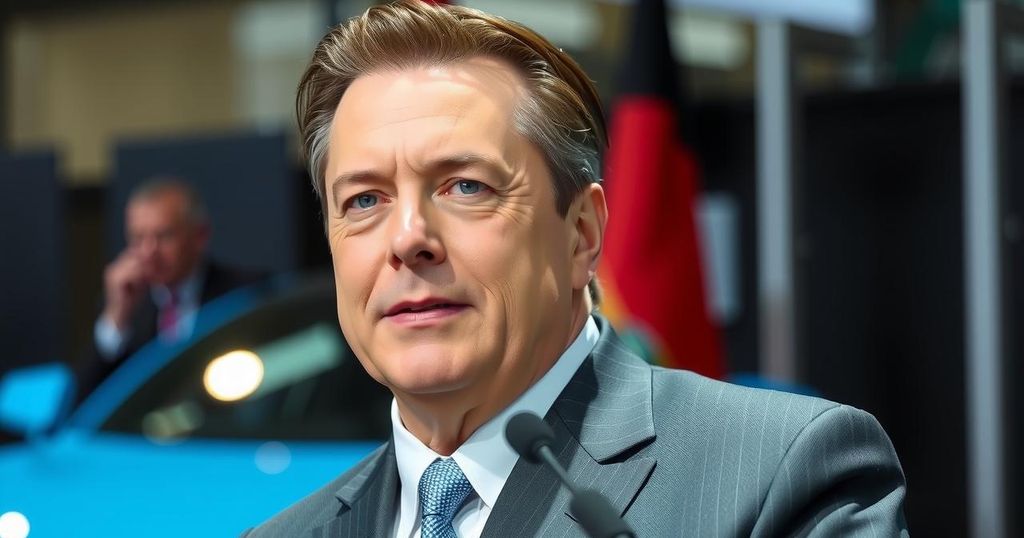German Government Responds to Elon Musk’s Support for AfD Party Ahead of Elections

The German government is minimizing the consequences of Elon Musk’s support for the far-right AfD party, following significant backlash from his opinion piece. Government spokesperson Christiane Hoffmann noted Musk’s attempts to sway public opinion in light of the AfD’s surveillance due to extremist connections. Germany is headed for elections on February 23 following the collapse of Chancellor Scholz’s coalition, raising the stakes for political endorsements.
The German government has made efforts to mitigate the impact of Elon Musk’s recent endorsement of the far-right Alternative for Germany (AfD) party ahead of the upcoming general elections. Musk’s support, articulated in an opinion piece, precipitated significant backlash, including the resignation of an opinion editor at the publication that featured his commentary. Government spokesperson Christiane Hoffmann remarked that while freedom of expression allows all opinions, Musk’s attempts to sway the federal election should be highlighted. She underscored the AfD’s surveillance by national intelligence due to extremist associations, further complicating its political legitimacy. As Germany approaches elections on February 23, the political landscape is already tense since Chancellor Olaf Scholz’s coalition recently disbanded over economic issues, paving the way for heightened scrutiny of intentions behind public endorsements like Musk’s.
The ongoing debate in Germany regarding the political influence of international figures is exacerbated by Elon Musk’s recent engagement with the country’s electoral politics. As the AfD party gains traction in public opinion polls, the implications of foreign endorsements and their potential to reshape political narratives are being critically examined. Musk’s assertion of a right to comment as an investor introduces complex questions surrounding economic interests influencing political dialogue, especially when interwoven with contentious party affiliations that raise concerns about extremism and social integrity within the electoral process.
In summary, Elon Musk’s endorsement of the AfD has ignited significant discourse regarding the boundaries of free speech and foreign involvement in German politics. With remarks highlighting the party’s potential and questioning its public perception, the government has sought to downplay Musk’s influence, emphasizing the party’s extremist monitoring. As Germany prepares for its early elections, the ramifications of such endorsements continue to unfold, reflecting the broader tensions within its political landscape.
Original Source: www.voanews.com








